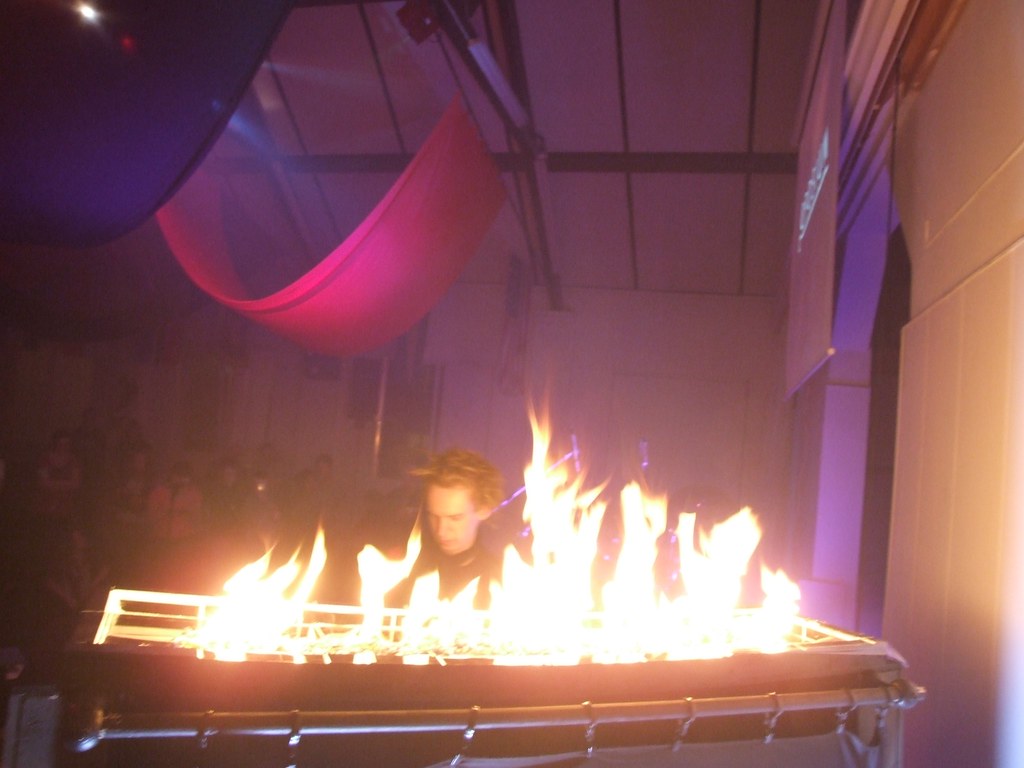Owing to the current structure of the compositional profession, even the most distinguished among us must sometimes condescend to take on a teaching post. I am no exception -- some have been temporary, some more permanent. These positions were at a number of institutions; including universities, conservatories, and on one occasion, at a state penitentiary.
The last example was the result of an ill-advised social welfare program that sought to rehabilitate Nebraska's most hardened criminals by teaching them the fundamentals of serial composition. It ended when Eight-Fingered Charlie put a crude, handmade shiv through the back of Pauly the Snitch in the middle of a performance of Schoenberg's Violin Phantasy. Later, when asked about the motive for the crime, he simply stated "I'd already heard that one."
 |
| Perhaps they should be taught to express violence through symbolist poetry |
Teaching is hardly my first love -- it ranks fourteenth on my list, actually -- but I still enjoy it sometimes.
Private lessons have always been a disappointment for me because the maximum possible audience for my experienced and insightful counsel is one; or two, if I include myself. And I ought to include myself, because some of the greatest bits of musical wisdom I've ever heard came out of my own mouth.
Most of all, I take particular pleasure in presiding over masterclasses. Here is a rare opportunity to dissect the music of young composers and expose its flaws in the proper setting -- a large auditorium full of their friends, colleagues, lovers, and members of the public. I've discovered that on the whole, students receive more than enough praise from other sources, so when it's my turn to comment on their work, I feel free to concentrate on more useful criticism.
 |
| Still a bit too intimate of a space for my tastes |
In general, I like to consider the following questions while I listen to a student piece:
- Does it respond appropriately to the current musical trends and attitudes that I find important?
- If my present attitude about music requires it, does the piece adequately address contemporary political and social issues? otherwise, is the piece sufficiently abstract?
- Is it too short? Not long enough?
- Are the performers able to present the music properly or is it as difficult to play as it should be?
- Can the composer justify every note and articulation found in the score, preferably in writing?
- Did any members of the audience whose musical opinions I do not respect appear to enjoy the piece?
- Does the piece sound too much like my own music? Too little?
- Did the piece result in general applause, a more appropriate stunned/confused silence, or, ideally, a riot?
Very few students are able to meet all of these criteria. That hardly surprises me; it requires careful attention to many factors, and the standards of what constitutes good music are mercurial at best. At Columbia in 1952, a student brought to me a piece including a number of major triads in root position. I encouraged him to find alternative employment in the accounting profession. At Brevard in 2004, a young woman proudly pointed out a 12-tone row around which she had built a piece in Webernian fashion. I suggested that perhaps the fashion she ought to be pursuing was fashion design.
The above instances demonstrate one of my signature teaching methods, which is to suggest a more suitable career path for people that are clearly going to fail as composers. As the old saying goes, "an ounce of prevention is worth a pound of cure," or in this case "an ounce of directness towards an incompetent student is worth a pound of scathing reviews once he's left school and 'found his voice.'" The best way to combat bad music is to ensure it never gets written, and that is my duty every bit as much as the cultivation of actual talent. I never hesitate to burn my own music when it fails to please me, and why should I hold to any different standard with my students? I'm speaking metaphorically, of course; most fire codes prohibit open flames in public spaces, as I was informed after a particular incident in Berlin in 1992.
 |
| It had to be done |








